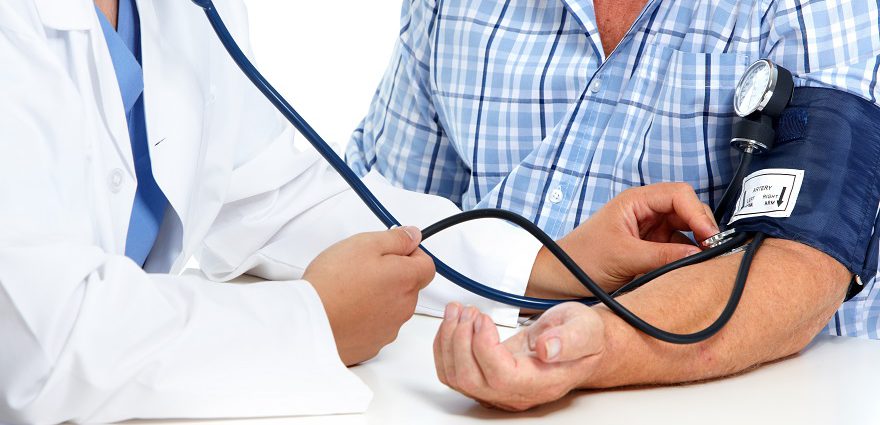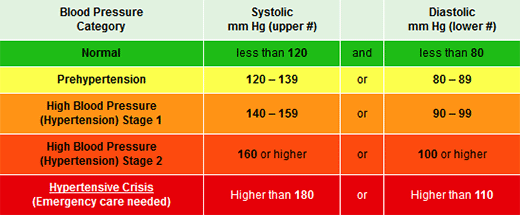What is High Blood Pressure and Why Does it Matter?

High blood pressure (hypertension) can dramatically increase risk for heart disease and stroke, yet there are rarely any symptoms. For this reason it is often referred to as the “silent killer.”
When the force of blood flow is too high, the muscles of the artery walls push back, which makes them grow thicker. Thick, narrow walls set the stage for a blockage that may result in a heart attack or stroke.
Getting Your Blood Pressure Under Control
The first step toward getting your blood pressure under control is to know your numbers and what they mean. [see chart]
Blood pressure is measured as millimeters (mm) of mercury (Hg) or mm/Hg.
Systolic pressure is the upper number in a blood pressure reading. It measures the pressure in the arteries when the heart beats.
Diastolic pressure is the lower number in a blood pressure reading. It measures the pressure in the arteries between heartbeats.
A normal reading is blood pressure at or below 120/80 mm Hg.
If your numbers are higher, you may have hypertension. In general, blood pressure readings that stay at 140/90 mm Hg or above will require treatment with lifestyle changes, medication or both.
About one in three U.S. adults has high blood pressure. Risks include family history, advancing age, poor diet, being overweight or obese, and consuming excessive amounts of alcohol.

Data sourced from Heart.org
Data sourced from Heart.org
High Blood Pressure Treatment Options
Lifestyle changes are a big part of reining in high blood pressure. The main tenets include:
- Following a healthy diet, which may include reducing salt. The DASH (Dietary Approaches to Stop Hypertension) diet is often recommended. In addition to lowering salt intake, DASH is replete with fruits, vegetables, and low-fat or nonfat dairy. The diet emphasizes whole grains and is rich in potassium, magnesium, calcium and fiber. (Read more about the DASH diet)
- Exercising regularly.
- Maintaining a healthy weight.
- Keeping stress levels at bay. (Stress can cause us to engage in unhealthy blood pressure-raising behaviors.)
- Drinking only moderate amounts of alcohol.
- Taking your medications as prescribed.
There are many types of prescription medications that can help control blood pressure and reduce the risk of heart attack or stroke. These medications may need to be taken for life to maintain their effect.
Tip: If you have high blood pressure, always read the labels on over-the-counter medications and supplements. Look for warnings that pertain to your high blood pressure or the prescription medications you take to control it. Better safe than sorry. Always ask your doctor what medications or supplements you can take safely if you have high blood pressure.
Source: American Heart Association: About High Blood Pressure


